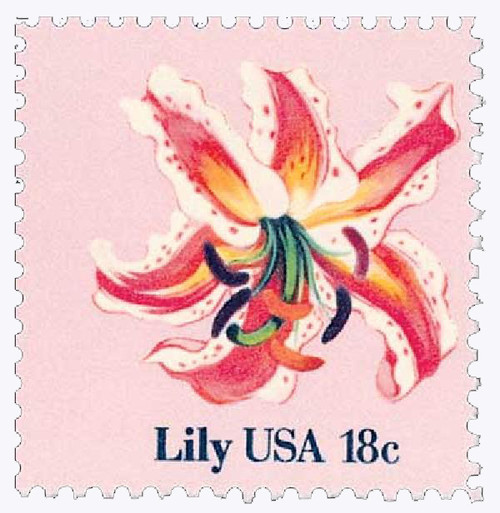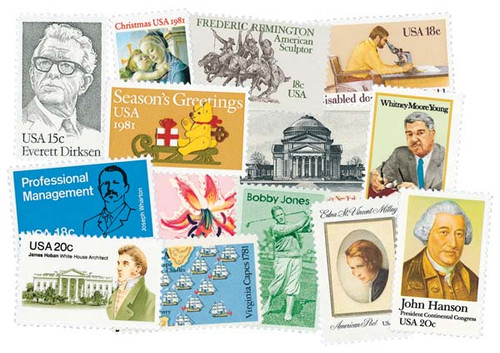
# 1876-79 FDC - 1981 18c Flowers
1981 18¢ Flowers
City: Fort Valley, Georgia
Quantity: 210,633,000
Birth of Theodore Roethke
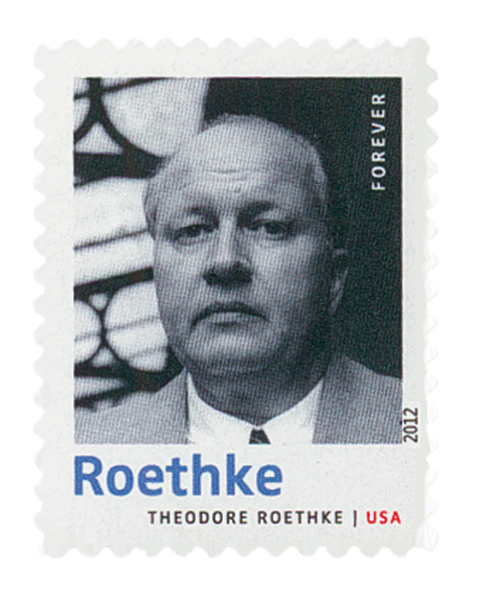
Acclaimed poet Theodore Huebner Roethke was born on May 25, 1908, in Saginaw, Michigan. Considered one of the most influential poets of his time, he won the 1954 Pulitzer Prize for Poetry and two National Book Awards for Poetry.
When he was young, Roethke spent a great deal of time in his father’s greenhouse, the inspiration for most of his writing throughout his life. When Roethke was just 15, his father and uncle died, which left him scarred both mentally and creatively.
As a teenager, Roethke displayed an early talent for writing, composing a speech for the Junior Red Cross that was later published in 26 languages. He went on to attend the University of Michigan at Ann Arbor, where he decided to become a teacher and a poet.

In 1931, Roethke began his more than 30-year teaching career as a popular professor with a unique enthusiasm that inspired several future famous poets. Among these students were James Wright, Carolyn Kizer, Tess Gallagher, Jack Gilbert, Richard Hugo, David Wagoner, and Sylvia Plath. Over the years, he taught at several schools, including Michigan State University, Lafayette College, Pennsylvania State University, Bennington College, and the University of Washington.
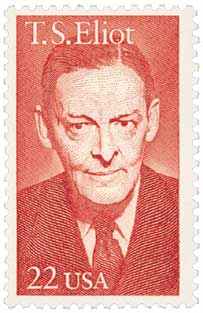
Early in his career, Roethke followed T.S. Eliot’s belief that “the only way to manipulate any kind of English verse, [is] by assimilation and imitation.” To that end, his early poems were largely inspired by the works of other poets, such as William Wordsworth, William Blake, Walt Whitman, William Butler Yeats, T.S. Eliot, and Dante. Roethke also usually had scraps of paper in his pockets, filled with spontaneous thoughts and ideas that struck him throughout the day. Roethke published his first collection, Open House, in 1941, which received largely positive reviews.
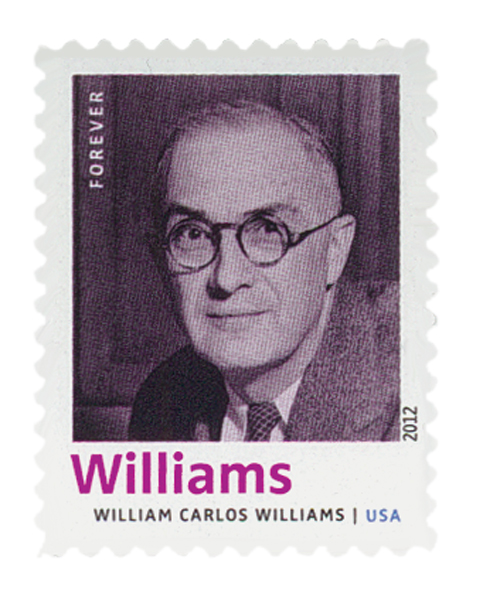
Constantly going “from exhaustion to exhaustion,” Roethke balanced the full-time jobs of teacher and poet as well as he could. Plagued by alcoholism and widely publicized mental breakdowns, Roethke resolved to remain fully committed to both endeavors, which only further diminished his poor mental and physical health.
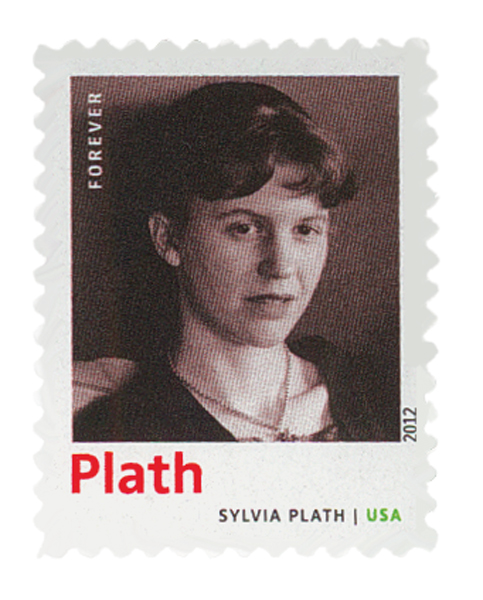
Roethke described his greatest influence, the greenhouse, as his “symbol for the whole of life, a womb, a heaven-on-earth.” He had a talent for describing the natural world through surreal imagery. Roethke credited his numerous mental breakdowns for helping him “reach a new level of reality” that he might not have achieved without them.
Roethke received a Ford Foundation grant in 1952 to “expand his knowledge of philosophy and theology.” He spent more than a year examining the works of Sören Kierkegaard, Evelyn Underhill, Meister Eckhart, Paul Tillich, Jacob Boehme, and Martin Buber. Two years later he won the Pulitzer Prize for Poetry for his book The Waking. He also won two National Book Awards for Poetry – in 1959 for Words for the Wind and in 1965, posthumously, for The Far Field.
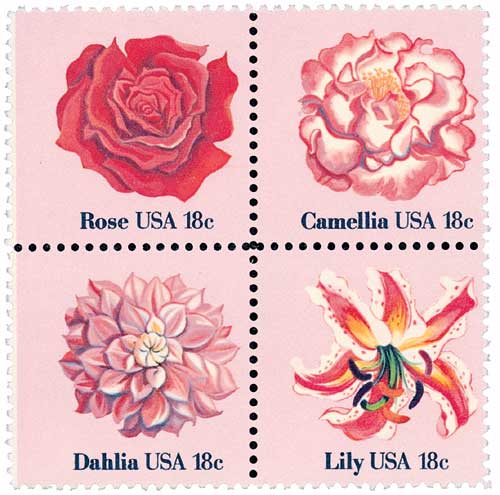
In the 1960s, Roethke recorded an album of poetry and was one of 50 outstanding Americans honored by the National Panel of Distinguished Americans of the Academy of Achievement. In 1963, Roethke suffered a heart attack and died on August 1. His childhood home is maintained as a museum and an auditorium at the University of Washington was named in his honor. Roethke was highly regarded by his fellow poets. US Poet Laureate James Dickey said that in his opinion, Roethke was “the greatest poet this country has yet produced.” Former student Richard Hugo said, “He was probably the best poetry-writing teacher ever.”
1981 18¢ Flowers
City: Fort Valley, Georgia
Quantity: 210,633,000
Birth of Theodore Roethke

Acclaimed poet Theodore Huebner Roethke was born on May 25, 1908, in Saginaw, Michigan. Considered one of the most influential poets of his time, he won the 1954 Pulitzer Prize for Poetry and two National Book Awards for Poetry.
When he was young, Roethke spent a great deal of time in his father’s greenhouse, the inspiration for most of his writing throughout his life. When Roethke was just 15, his father and uncle died, which left him scarred both mentally and creatively.
As a teenager, Roethke displayed an early talent for writing, composing a speech for the Junior Red Cross that was later published in 26 languages. He went on to attend the University of Michigan at Ann Arbor, where he decided to become a teacher and a poet.

In 1931, Roethke began his more than 30-year teaching career as a popular professor with a unique enthusiasm that inspired several future famous poets. Among these students were James Wright, Carolyn Kizer, Tess Gallagher, Jack Gilbert, Richard Hugo, David Wagoner, and Sylvia Plath. Over the years, he taught at several schools, including Michigan State University, Lafayette College, Pennsylvania State University, Bennington College, and the University of Washington.

Early in his career, Roethke followed T.S. Eliot’s belief that “the only way to manipulate any kind of English verse, [is] by assimilation and imitation.” To that end, his early poems were largely inspired by the works of other poets, such as William Wordsworth, William Blake, Walt Whitman, William Butler Yeats, T.S. Eliot, and Dante. Roethke also usually had scraps of paper in his pockets, filled with spontaneous thoughts and ideas that struck him throughout the day. Roethke published his first collection, Open House, in 1941, which received largely positive reviews.

Constantly going “from exhaustion to exhaustion,” Roethke balanced the full-time jobs of teacher and poet as well as he could. Plagued by alcoholism and widely publicized mental breakdowns, Roethke resolved to remain fully committed to both endeavors, which only further diminished his poor mental and physical health.

Roethke described his greatest influence, the greenhouse, as his “symbol for the whole of life, a womb, a heaven-on-earth.” He had a talent for describing the natural world through surreal imagery. Roethke credited his numerous mental breakdowns for helping him “reach a new level of reality” that he might not have achieved without them.
Roethke received a Ford Foundation grant in 1952 to “expand his knowledge of philosophy and theology.” He spent more than a year examining the works of Sören Kierkegaard, Evelyn Underhill, Meister Eckhart, Paul Tillich, Jacob Boehme, and Martin Buber. Two years later he won the Pulitzer Prize for Poetry for his book The Waking. He also won two National Book Awards for Poetry – in 1959 for Words for the Wind and in 1965, posthumously, for The Far Field.

In the 1960s, Roethke recorded an album of poetry and was one of 50 outstanding Americans honored by the National Panel of Distinguished Americans of the Academy of Achievement. In 1963, Roethke suffered a heart attack and died on August 1. His childhood home is maintained as a museum and an auditorium at the University of Washington was named in his honor. Roethke was highly regarded by his fellow poets. US Poet Laureate James Dickey said that in his opinion, Roethke was “the greatest poet this country has yet produced.” Former student Richard Hugo said, “He was probably the best poetry-writing teacher ever.”












